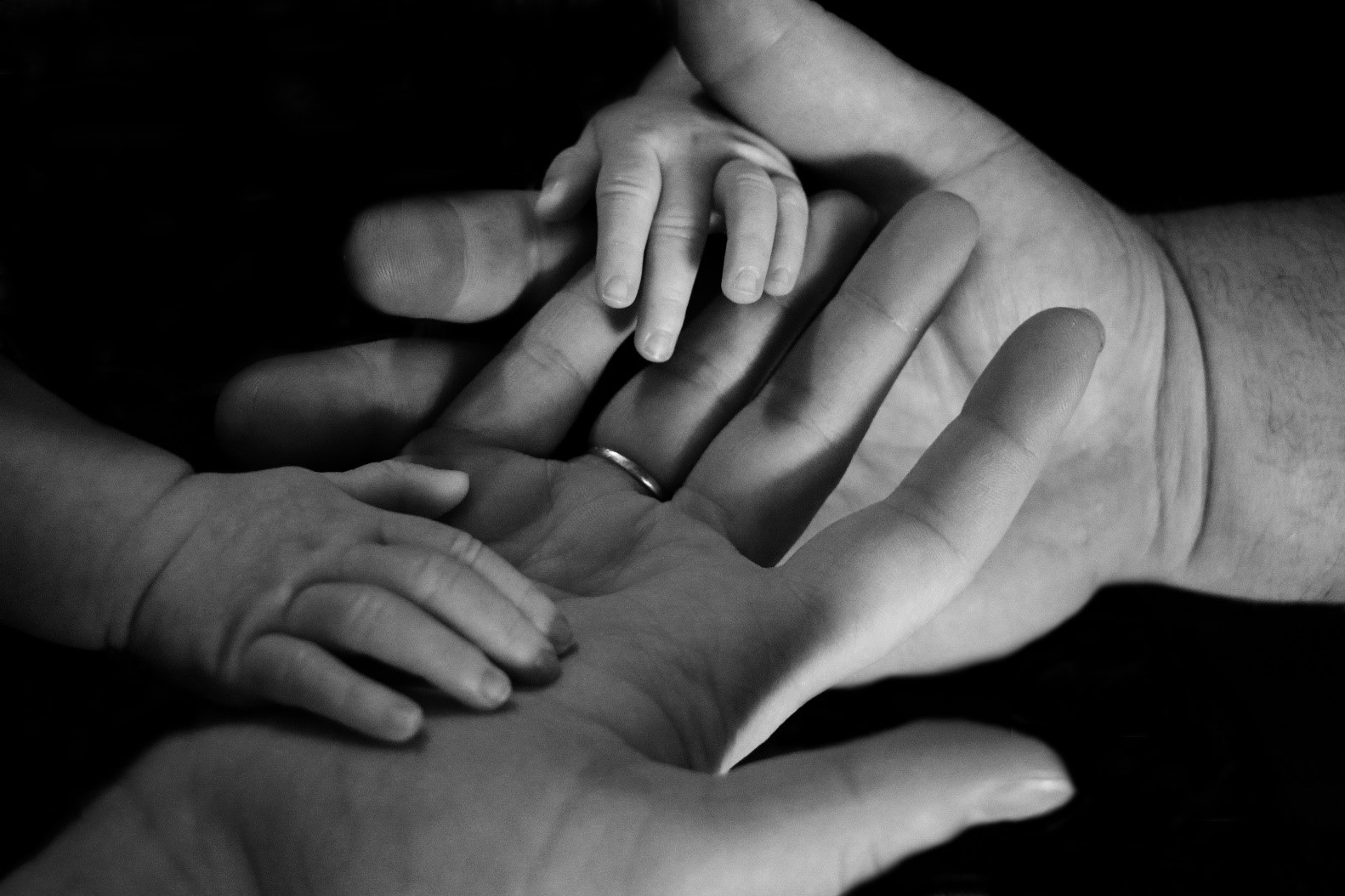“You either learn to manage money, or the lack of that skill will manage you for the rest of your life.” –Dave Ramsey
With the current housing market, inflation, and recession talk, money is a topic on a lot of people’s minds.
And the beginning of a new year is the ideal time to take an honest look at our financial habits, and change course if necessary.
Money is also one of the most important personal leadership skills we can develop because it affects so many areas of our lives.
Buried under debt
For years my wife was terrified about our financial future and tried to bring it to my attention.
One night in 2012, she finally got through to me.
As usual, I was annoyed and felt she was being negative or dramatic. But she was the one doing our budget and watching our credit card statements—because I didn’t want to look at that stuff—and it wasn’t pretty.
We were a typical American couple. We had both borrowed heavily to get through school, we had car loans, credit cards, and other debt. With this financial starting point, we bought a house the first year of our marriage with almost nothing down (because nothing was what we had).
The hole was so deep, we weren’t making any progress.
To make matters worse, we had continued to use debt. Our household income had gone up significantly, but we were burning right through it every month.
And it’s hard to climb out of a hole when you keep digging.
The financial future I was leading my family toward was dismal, and it was time I accepted the fact that I didn’t know what I was doing. I needed to make some major changes or things were never going to improve.
Thankfully, my wife broke through my thick skull and we created a plan. We found some great books and resources that radically changed our habits, and six years later we made our last payment on my student loan. It was a very difficult journey, but one of the most important things we have ever done.
We had zero debt, and finally realized the crippling weight of anxiety we had been carrying all that time.
I will share what we learned along the way, and those resources with you today.
Money is a vital leadership skill for your business and your family
In our current culture, we seem to have fallen prey to a herd mentality which isn’t leading anywhere good.
Consider the following statistics in recent news (links at bottom):
-
According to a CNBC story in January 2019, 78% of US workers are living paycheck to paycheck.
-
In May of 2019, ABC cited a survey by the Federal Reserve that declared 40% of Americans could not cover a $400 crisis without borrowing money.
-
In April 2019 CNBC cited data from the Insured Retirement Institute which showed that 45% of baby boomers have zero retirement savings. When asked what they would do when they ran out of money—retirees said they would live on social security, go back to work, or ask their children for money.
In addition to these studies, fights about money is one of the top three reasons for divorce in the US—responsible for more than 22% of divorces.
Our habits with money play a large role in our mental and physical health, our marriages, and our children’s future. Decisions about money can permanently rupture relationships with friends or family.
All of those things affect our ability to lead throughout our lives with our greatest impact.
In high visibility leadership positions, mishandling money can have dire consequences—like losing your job or wrecking your credibility for good. Think Enron.
Kenneth Lay—the CEO of Enron—is now known as one of the worst CEO’s in American history, leaving behind a “legacy of shame, mismanagement, and dishonesty” according to Bloomberg News.
“But my income is good”
High income is not the same as being financially secure.
A simple Google search reveals countless celebrities that had extremely high incomes—yet managed to blow through millions and still end up with insurmountable debt.
Mike Tyson, Michael Jackson, Johnny Depp, and Nicolas Cage are just a few of the familiar names you will find.
In his meticulous studies of real millionaire habits, author and professor Tom Stanley calls this “high-income, high-consumption” lifestyle.
Without the ability to hang on to money, income only helps so much.
Why? Because money is about appetites, habits, and emotions. In some cases, it’s about addictions.
Billy Graham, who served as a spiritual advisor to every US president from Truman to Obama, once said that “nothing would reveal your real priorities more than your calendar or your bank statements.”
What does your bank account say about your real priorities?
A great question to ponder—If your spending habits were public, what story would it tell?
So what can you do?
We should never be ashamed of not knowing how to handle money. After all, it’s not a skill we are born with. But it is a skill that everyone can and should build. It is also something we desperately need to include in basic education in schools.
Many people think they need to learn complex investing strategies, but that is like trying to build the lunar module without first considering how you would even get to the moon.
In reality, most people just need to do a monthly budget, live on less than they make, and save money for emergencies and retirement. Besides, the probability of you developing investing mastery as a side hustle is extremely unlikely. Most research supports the idea that even most professional investors cannot beat the S&P 500.
In fact, according to Investopedia, 63% of Americans are financially illiterate and cannot pass a basic financial literacy test!
Without some basic education and a plan, it is unlikely that you will ever make progress on your finances.
Here are 9 ways to take action now:
- Commit to educating yourself on financial basics immediately. Read a book or take a class, but start right now and don’t wait. The best resource I have found is the 9-week Financial Peace University class which is now offered online for $129 bucks. It might be the most important investment you ever make. I have no financial relationship with this class. https://www.daveramsey.com/store/financial-peace-university
- Do a monthly budget. It is very difficult to make any financial headway without knowing what is coming in and going out every month. If you are married, do this with your partner. It may take some time to get on the same page, but you cannot make real progress without being united.
- Have an emergency fund. Without an emergency fund, you are just one crisis away from your financial breaking point. And emergencies happen to everyone. The last thing you need in an emergency is more debt and financial stress right?
- Eliminate debt. As stated earlier, you cannot climb out of a hole when you are still digging deeper. All the research shows that we are more likely to spend when the money isn’t really ours (i.e. credit), but we still end up having to pay the bill when we borrow, plus interest. Set a goal of saving up for everything except your house (unless of course you want to do that too!).
- Live on less than you make. This should seem obvious, but the data shows people aren’t doing it. Having money left over at the end of the month is what allows you to save and invest for the future. New York Times best-selling author and professor Tom Stanley said that the number one reason for people not being able to make financial progress was having a mortgage payment that was too big. Dave Ramsey recommends 25% to 35% of your net household income going to housing expenses.
- Track your net worth, not your income. This practice is recommended by nearly every good financial guide I have found. It’s the best way to look at your financial progress over time. Just search online to find out how to calculate your net worth.
- Save for retirement and start early. All the data shows people aren’t planning well or starting early enough. Don’t burden your children by making them your retirement plan. Make a plan to retire with dignity.
- Teach your kids how to handle money early in life. Don’t let culture or advertising teach your kids about money. It is a skill that can help them avoid huge stress and pain in their lives. And the best way to teach them is to model the behavior yourself. More is caught than taught, and the most common way we learn about money is by watching our parents.
- Generosity is a great way to break the habit of over-spending. When you give some away at the beginning of the month, you aren’t as tempted to spend more on yourself.
Have a great weekend!
Parker
IMPORTANT! Parker is now co-host of The Next Peak Podcast. Click here to listen to the episode on money habits, or find The Next Peak Podcast in the App Store on your phone.
Suggested Resources
- The 10 best moves anyone can make with money https://esimoney.com/the-ten-best-money-moves-anyone-can-make/
- The Total Money Makeover by Dave Ramsey
- The Millionaire Next Door by Tom Stanley
- Retire Inspired by Chris Hogan
- Everyday Millionaires by Chris Hogan (Best overall book on money, my number one reccomendation)
- The Simple Path to Wealth by JL Collins
- https://www.cnbc.com/2019/01/09/shutdown-highlights-that-4-in-5-us-workers-live-paycheck-to-paycheck.html
- https://abcnews.go.com/US/10-americans-struggle-cover-400-emergency-expense-federal/story?id=63253846
- https://www.cnbc.com/2019/04/09/baby-boomers-face-retirement-crisis-little-savings-high-health-costs-and-unrealistic-expectations.html




